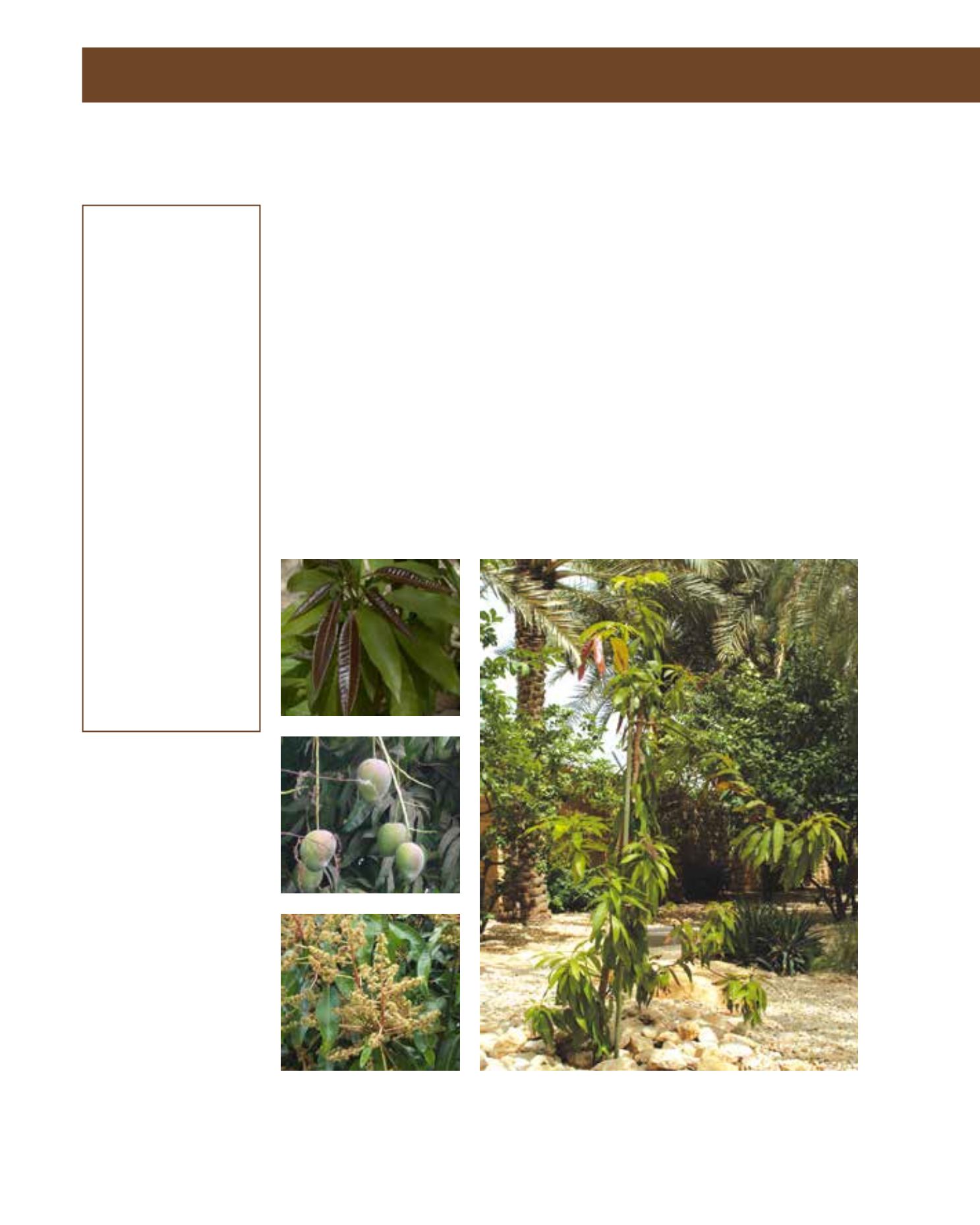

GENERAL
Origin
:
tropical
Humidity
:
very humid,
extremely humid
Propagation :
sowing and
pricking out
Maintenance :
high
CONDITIONS
Urban climate :
vulnerable
Dessication :
vulnerable
Stagnant water :
vulnerable
Irrigation
:
high
Salinity/ppm :
low (700 ppm)
Hardiness
:
0°C
SHAPE
Type
:
tree
Height
:
18 m-30 m
Spread
:
12 m-30 m
Foliage
:
evergreen
FLOWER
Colour
:
light yellow, pale
green
Size
:
40 cm
Period
:
February - April
FRUIT
Type of fruit :
drupe(fleshy/
juicy)
Fruit size
:
12 cm - 15 cm
Toxicity
:
produced for
food, edible, fruit
The unmistakable Mango Tree is a huge tree when mature, reaching a height of 30 metres with
a broad, and rounded canopy of the same width. Native to India, Myanmar and Malaysia, this
slow-growing, long-lived tree will not reach these proportions in Arriyadh, but it can still make
an attractive, fruit-bearing tree when well cultivated and protected from frost. Nearly evergreen,
alternate leaves, up to 30 cm long and 5 cm wide, are borne in rosettes at the tips of the branches;
new leaves are yellowish to wine-red. Hundreds of small, yellowish flowers are borne in spring
in large clusters. The fruits, varying in form, size, colour and quality depending on the variety,
contain a single, flattened, pale, hard stone. Preferring rich, deep, well-drained soil, but not too
particular with regard to soil type, the tap root may descend to a depth of 6 metres. It performs
well in sand, gravel and on limestone. Mango trees grow readily from seed and require high ni-
trogen fertilisation in the early years. Drought tolerance is low and regular irrigation is required.
Usually no pruning is done at first and then only to improve the form. The Mango has a great
many predators: some secrete honeydew, giving rise to sooty mould on leaves. One serious disease
is powdery mildew, controllable by regular spraying. Nutrient deficiency is indicated by paleness,
distortion and limpness of foliage. Lack of iron produces chlorosis in young trees. Mangos are
good as specimen shade trees in Arriyadh, but require high maintenance.
199
Mangifera indica,
Anacardiaceae
Mango Tree,
amba
















